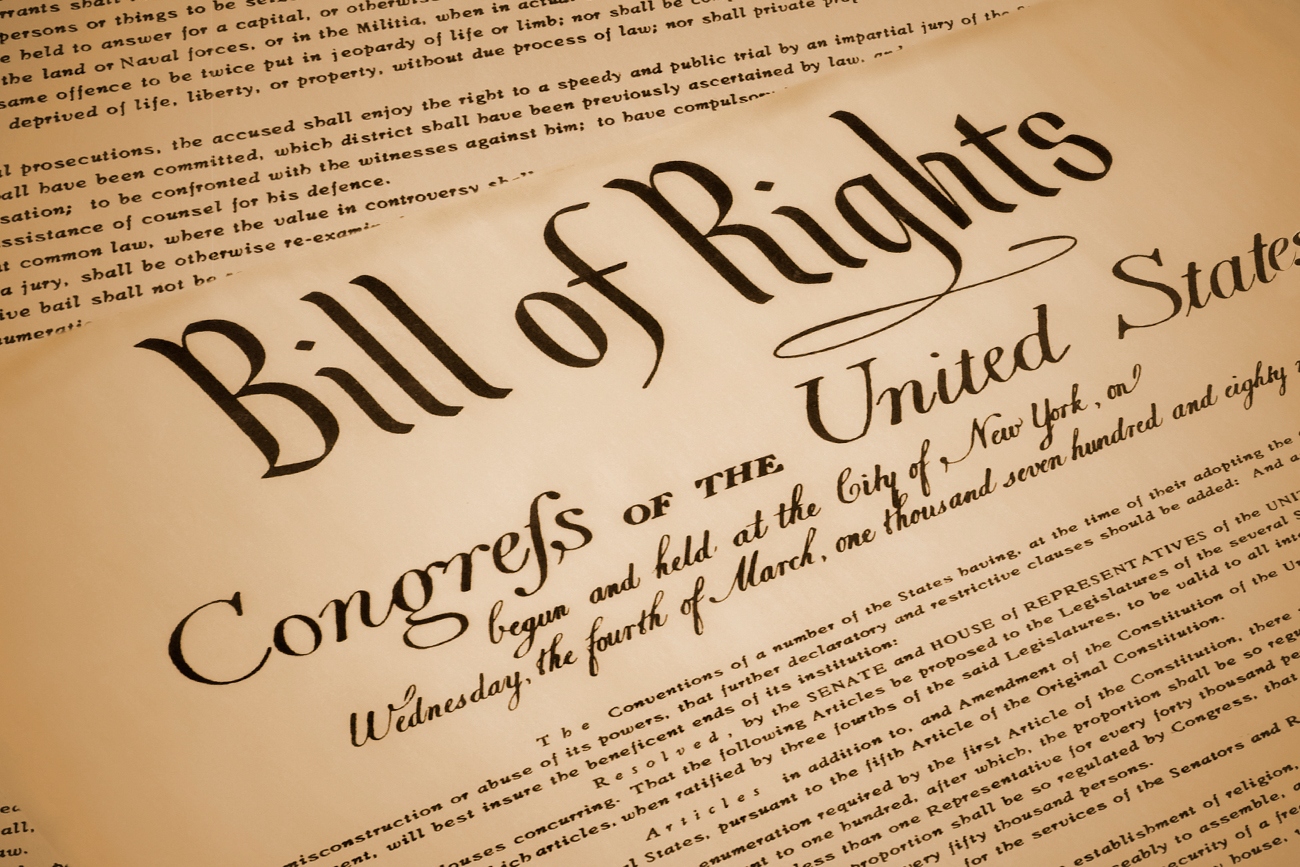The Supreme Court ruled 6-3 Monday afternoon against New York healthcare workers seeking religious exemptions to the Wuhan coronavirus vaccine mandates in the state.
Today is "Bill of Rights Day"---we should take a closer look at why they exist and what they mean.
Be informed, not misled.
The Supreme Court of the United States has denied an emergency request of New York healthcare workers seeking a religious exemption from the vaccination mandate.
The doctors and nurses argued that other exemptions are being granted, but not those based on religious beliefs.
The US military has also been consistently denying religious exemptions as well.
Justices Thomas, Alito, and Gorsuch disagree with their colleagues on the Court. They dissented.
Justice Gorsuch, in his dissent, said this:
New York recently issued a regulation requiring healthcare workers to receive a COVID--19 vaccine. Those who cite medical reasons are exempt. But no comparable exemption exemption exists for individuals whose sincere religious beliefs prevent them from taking one of the currently available vaccines. It seems New York is one of just three States to have a scheme like this. And it seems originally even New York was headed in a different direction.
His reference is to the fact that now-former Governor Cuomo had promised that religious exemptions were included in his mandate. He, as you know, was forced to resign recently. When Democrat Governor Kathy Hochul replaced Cuomo, she eliminated the religious exemption from the mandate.
That is not lost on Justice Gorsuch.
He continued:
"When it announced the mandate, the then-Governor promised a reli- gious exemption. Weeks later, the State backtracked. It offered no scientific evidence, or even a written explanation, for the decision. But a new Governor who assumed office around the same time spoke about it. The new Governor announced that the decision to eliminate the exemption was 'intentiona[l]' and justified because no 'organized religion' sought it and individuals who did were not 'listening to God and what God wants.' Now, thousands of New York healthcare workers face the loss of their jobs and eligibility for unemployment benefits."
He continued:
"Twenty of them have filed suit arguing that the State’s conduct violates the First Amend- ment and asking us to enjoin the enforcement of the man- date against them until this Court can decide their petition for certiorari. Respectfully, I believe they deserve that relief."
Respectfully, I'm wondering where Brett Kavanaugh and Amy Coney Barrett are. If they're originalists as they claim and we the people believed--- what part of this action by the new governor does not strike a blow to the First Amendment?
Today is Bill of Rights Day.
December 15th was designated by President Franklin D. Roosevelt in 1941 as a day to observe and honor the ratification of the first 10 amendments to the United States Constitution.
During the American Revolution, the former thirteen "British" colonies---now states, or basically independent nations---came together under the Articles of Confederation for military and other collective purposes.
But some of the leaders of the Revolution---like Patrick Henry, George Mason, and others, feared that the Articles of Confederation were too weak and risked letting powerful European nations invade the new states and take them over one by one.
In creating a "more perfect union," these leaders sought to ward off European threats and address some of the domestic problems the Articles were unable to correct. The result was the drafting of the United States Constitution.
While the Constitution created a new national government that would rectify the deficiencies of the Articles of Confederation, there were those who feared that this newly formed government would---or at least could---abuse its powers against the citizens.
The debate was vigorous, to say the least.
Ultimately the two sides reached a compromise: the drafting of a set of specific limitations on the powers of the new government. These specific limitations would be amendments to the Constitution, specifically guaranteeing certain rights to the people and the states.
On the assurance that those amendments would follow, the Constitution was ratified in June of 1788.
Twelve constitutional amendments were approved by the new Congress in September 1789. Ten were ratified by the 11 states required to make them effective on December 15, 1791.
Those ten amendments have become known as the "Bill of Rights."
Thus, December 15 is "Bill of Rights Day."
Takeaway
The Amendment that stands in broad daylight in today's America is the first one:
"Congress shall make no law respecting an establishment of religion, or prohibiting the free exercise thereof; or abridging the freedom of speech, or of the press, or of the right of the people to peacefully assemble, and to petition the Government for a redress of grievances."
The conviction our Founding Fathers held was that these "Rights" are "God-given"---not government-given. Therefore government was charged with protecting them, not evaluating when they are and are not applicable.
At the forefront is the idea that the government shall not prohibit the free exercise of one's religious beliefs.
Unfortunately, some of the Founder's fears are being realized today. Rather than European powers, it's some of our own institutions hacking away at the very foundations of the greatest country in the history of the world.
Be Informed. Be Engaged. Be Discerning. Be Bold. Be Prayerful.


